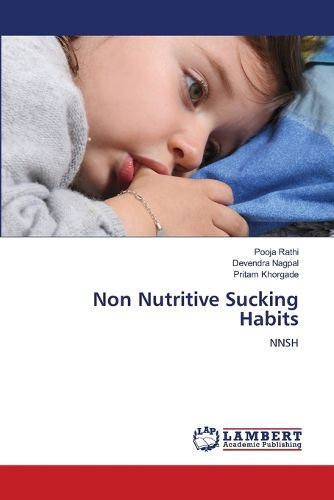Readings Newsletter
Become a Readings Member to make your shopping experience even easier.
Sign in or sign up for free!
You’re not far away from qualifying for FREE standard shipping within Australia
You’ve qualified for FREE standard shipping within Australia
The cart is loading…






This title is printed to order. This book may have been self-published. If so, we cannot guarantee the quality of the content. In the main most books will have gone through the editing process however some may not. We therefore suggest that you be aware of this before ordering this book. If in doubt check either the author or publisher’s details as we are unable to accept any returns unless they are faulty. Please contact us if you have any questions.
Non-nutritive sucking habit (NNSH) refers to the act of sucking on objects like fingers, thumbs, or pacifiers that isn't related to feeding. It's a common comfort-seeking behavior in infants and young children, providing reassurance or helping them calm down. While it's normal in early childhood, prolonged sucking beyond the age of 3-4 can lead to dental issues like misaligned teeth, speech problems, and changes to the palate. Addressing the habit early through positive reinforcement, behavioral techniques, and, if needed, dental interventions can help prevent long-term complications.
$9.00 standard shipping within Australia
FREE standard shipping within Australia for orders over $100.00
Express & International shipping calculated at checkout
This title is printed to order. This book may have been self-published. If so, we cannot guarantee the quality of the content. In the main most books will have gone through the editing process however some may not. We therefore suggest that you be aware of this before ordering this book. If in doubt check either the author or publisher’s details as we are unable to accept any returns unless they are faulty. Please contact us if you have any questions.
Non-nutritive sucking habit (NNSH) refers to the act of sucking on objects like fingers, thumbs, or pacifiers that isn't related to feeding. It's a common comfort-seeking behavior in infants and young children, providing reassurance or helping them calm down. While it's normal in early childhood, prolonged sucking beyond the age of 3-4 can lead to dental issues like misaligned teeth, speech problems, and changes to the palate. Addressing the habit early through positive reinforcement, behavioral techniques, and, if needed, dental interventions can help prevent long-term complications.